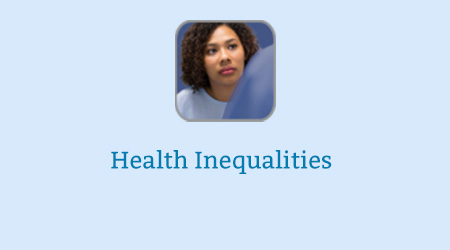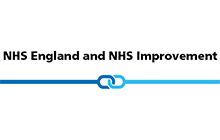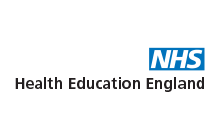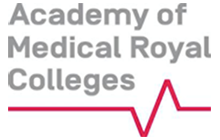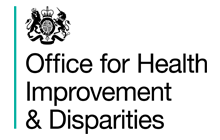Available on the Learning Hub
This programme has moved to the NHS Learning Hub. We recommend you read the information on this webpage to find out more about the programme before you access the learning (https://learninghub.nhs.uk/Catalogue/health-inequalities).
More information about the Learning Hub and the migration of elfh programmes can be found here.
About the Health Inequalities Programme
For some people in the UK there are still unfair and avoidable inequalities in their health as well as their access to and experiences of NHS services. Health inequalities are the preventable, unfair and unjust differences in health status between groups, populations or individuals that arise from the unequal distribution of social, environmental, and economic conditions within societies. They can determine the risk of people getting ill, their ability to prevent sickness, or their opportunities to take action and access treatment when ill health occurs.
After more than a century of improvement, increases in life expectancy have stalled. For women in the most deprived communities in England, using the Index of Multiple Deprivation (IMD), there has been a decline in life expectancy in the last decade. People in more deprived areas spend more of their shorter lives in ill health than those in the least deprived areas.
The health inequalities programme is designed to help healthcare professionals to:
- understand the importance of health inequalities in clinical practice
- recognise the causes of health inequalities in services, experience, or outcomes among patients
- reflect on the role of the healthcare professional in narrowing the gap on health inequalities
- apply quality improvement methodology to tackle health inequalities in their field
Courses in the Health Inequalities Programme
There are currently 2 courses as part of the health inequalities programme.
-
Sickle cell disorder
The 1st session of the health inequalities programme to be launched focuses on sickle cell disorder, which is the name for a group of inherited red blood cell disorders. The most serious type is called sickle cell anaemia. People with sickle cell disorder produce unusually shaped red blood cells that can cause problems because they do not live as long as healthy blood cells and can block blood vessels. Sickle cell disorder is a serious and lifelong health condition, although treatment can help manage many of the symptoms.
This session, which will take approximately 30 minutes to complete, is an ideal resource for healthcare professionals looking for information and advice on how they can help to close the healthcare inequities gap among patients of sickle cell disorder.
-
Core20PLUS5
Core20PLUS5 is a national NHS England approach to support the reduction of health inequalities at both national and system level. The approach defines a target population cohort – the ‘Core20PLUS’ – and identifies ‘5’ focus clinical areas requiring accelerated improvement.
Core20
The most deprived 20% of the national population as identified by the national Index of Multiple Deprivation (IMD). The IMD has seven domains with indicators accounting for a wide range of social determinants of health.
PLUS
PLUS population groups we would expect to see identified are ethnic minority communities; inclusion health groups; people with a learning disability and autistic people; coastal communities with pockets of deprivation hidden amongst relative affluence; people with multi-morbidities; and protected characteristic groups; amongst others.
Inclusion health groups include people experiencing homelessness, drug and alcohol dependence, vulnerable migrants, Gypsy, Roma and Traveller communities, sex workers, people in contact with the justice system, victims of modern slavery and other socially excluded groups.
5
The final part sets out 5 clinical areas of focus. Governance for these 5 focus areas sits with national programmes; national and regional teams coordinate local systems to achieve national aims.
- Maternity: ensuring continuity of care for women from Black, Asian and minority ethnic communities and from the most deprived groups. This model of care requires appropriate staffing levels to be implemented safely.
- Severe mental illness (SMI): ensuring annual health checks for 60% of those living with SMI (bringing SMI in line with the success seen in learning disabilities).
- Chronic respiratory disease: a clear focus on Chronic Obstructive Pulmonary Disease (COPD) driving up uptake of COVID, flu and pneumonia vaccines to reduce infective exacerbations and emergency hospital admissions due to those exacerbations.
- Early cancer diagnosis: 75% of cases diagnosed at stage 1 or 2 by 2028.
- Hypertension case-finding and optimal management and lipid optimal management: to allow for interventions to optimise blood pressure and minimise the risk of myocardial infarction and stroke.
More information
The health Inequalities programme is designed to provide healthcare professionals with a better understanding of the differences in the care that people could receive and the opportunities that they have to lead healthy lives – both of which can contribute to their health status and outcomes.
At the end of this course, you will:
- understand the importance of health inequalities in clinical practice
- recognise the causes of health inequalities in services, experience or outcomes among patients
- reflect on the role of the healthcare professional in narrowing the gap on health inequalities
- apply quality improvement methodology to tackle health inequalities
Each of the 6 sessions in this programme take approximately 30 minutes to complete.
Author teams
Narrowing health inequalities in chronic respiratory disease:
• Dr Marina Soltan
• Ash Birtles
• Kanar Ahmed
• Paul Baker
• Anthony Choules
• Jo Szram
• Professor Andrew Menzies-Gow
• Mark Dinsdale
Narrowing health inequalities in early cancer diagnosis:
• Dr Marina Soltan
• Orla Houlihan
• Kanar Ahmed
• Paul Baker
• Anthony Choules
• Jo Szram
• Professor Peter Johnson
Narrowing health inequalities in hypertension:
• Dr Marina Soltan
• Sophie Smith
• Kanar Ahmed
• Paul Baker
• Anthony Choules
• Adrian Stanley
• Shahed Ahmed
Narrowing health inequalities in maternity:
• Dr Marina Soltan
• Rosie Murphy
• Kanar Ahmed
• Paul Baker
• Anthony Choules
• Malini Prasad
• Josie O’Heney
• Rehan Khan
• Wendy Olayiwola
Narrowing health inequalities in severe mental illness (SMI):
• Dr Marina Soltan
• Subodh Dave
• Emma Tiffin
• Joseph Guirguis
• Lynne Hall
• Kanar Ahmed
• Paul Baker
• Anthony Choules
• Jo Szram
Narrowing health inequalities in sickle cell disorder:
• Dr Marina Soltan
• Dr Dianne Addei
• Dr Perla Eleftheriou
• Professor Baba Inusa
• Dr Sanne Lugthart
• Zainab Garba-Sani
HEE elearning for healthcare team

Sarah Gray
Programme manager, HEE e-Learning for Healthcare
Laura Pope
Senior Project Manager, HEE e-Learning for Healthcare
Sonali Gupta
Learning Designer, HEE e-Learning for Healthcare
Charlotte Howell
Learning Designer, HEE e-Learning for Healthcare
Alan Campbell
Learning Designer & Graphic Designer, HEE e-Learning for Healthcare
Paula Casey
Lead Learning Designer, HEE e-Learning for Healthcare
Louise Garrahan
Senior Marketing and Communications Officer, HEE e-Learning for Healthcare
Karen Walker
Lead learning designer, HEE elearning for healthcare
Robin Lewis
Learning designer animator, HEE elearning for healthcare
How to access
To access this elfh programme, you will require a Learning Hub account. If you do not have one, then you can register by selecting the Register button below. Note that if you hold a full elfh account, you can sign into the Learning Hub using your existing login credentials.
To view the Health Inequalites programme, select the View button below. If you already have a Learning Hub account, you will also be able to login and access the resources within the programme.
Not an NHS organisation?
If you are not an NHS health or care organisation and therefore do not qualify for free access to the Learning Hub, you may be able to access the service if you have an existing OpenAthens account. Please go to Learning Hub and sign in with your existing credentials.
If you do not have an existing OpenAthens account, please contact elfh directly to check whether you may be eligible for access.
Registering large numbers of users
If you are an HR, IT or Practice Manager and would like to register and enrol large numbers of staff within your organisation for access onto the Health Inequalites programme, please contact elfh directly.
Organisations wishing to use their own LMS
For HR departments wanting to know more about gaining access to courses using an existing Learning Management System please contact elfh directly to express interest.
More information
Please select the following link for more information on how to use the Learning Hub.



